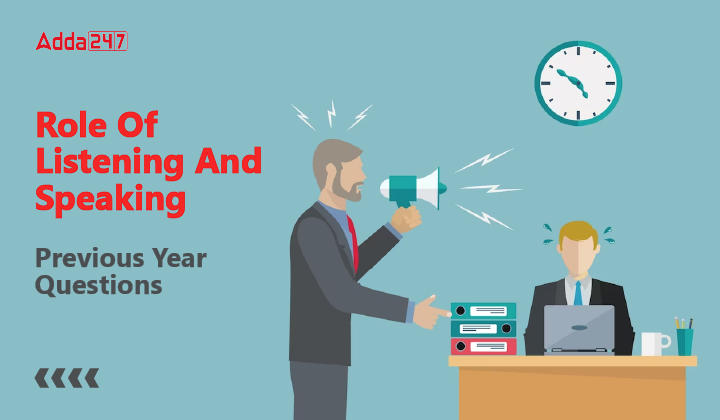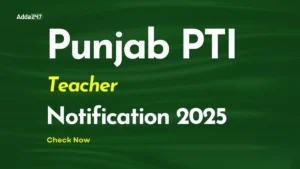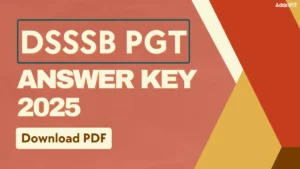Table of Contents
In numerous teaching exams, such as CTET and other State TETs, English is a compulsory section comprising 15 questions on English content and 15 questions on English Pedagogy. English Pedagogy proves to be an intriguing and rewarding topic within the English Language section of CTET and other TET Exams. This article presents topic-wise previous year questions to aid in your preparation.
Role of Listening & Speaking – Functions of Language (Previous Year Questions)
Q1. The spoken skills in a language teaching classroom can be developed through
(a) Enabling activities with a focus on conversation skills leading to communicative competence
(b) Group activities where learners can talk in whichever language they would like to
(c) Engaging in small talk as confident aggressive learners
(d) Encourage play with no other objectives
Q2. Ria is unable to pronounce the words ‘smile’ and ‘school’ clearly. As her teacher, what will you do?
(a) Humiliate Ria by isolating her and asking her to repeat the words
(b) Asking the entire class to repeat the words and appreciating Ria when she repeats them correctly
(c) Make Ria repeat the ‘words’ many times
(d) Make Ria understand the meaning and the sound pattern and get the class as a whole to listen to these words through an audio – visual medium
Q3. Telling interesting stories to young learners is primarily meant for improving their
(a) writing skills
(b) speaking skills
(c) listening skills
(d) reading skills
Q4. The main purpose of using an oral drill is
(a) to assess the comprehension skills of learners
(b) to improve pronunciation and accuracy
(c) to enhance the speaking skills of learners
(d) to improve the retention capacity of learners
Q5. ‘Decorum’ in spoken language pertains to
(a) correct grammatical usage
(b) voice quality or loudness
(c) clarity and purity of style
(d) appropriate gestures
Q6. Speaker 1 : Where are you from?
Speaker 2 : Kashmir
During the assessment of students’ speaking-listening skills, marks would be deducted during this exchange for
(a) the first speaker
(b) the second speaker
(c) Both of them
(d) Neither of them
Q7. A fellow traveller at the airport has just finished reading the newspaper and you want him/her to pass it to you. Choose how you will make the request?
(a) Pass me the paper
(b) Pass me the paper, please
(c) Can you pass me the paper
(d) Could you possibly pass me the newspaper?
Q8. Read this exchange
Teacher: Do you like to read a storybook instead?
Student: Yes
Teacher: Yes, please Here,
The teacher
(a) confirms the student’s request
(b) offers an alternative language activity
(c) relates language function with politeness
(d) makes a polite suggestion to start roading
Q9. “You ask, what is our aim? I can answer in one word: victory”. Churchill asks a question and then goes on to answer it. Such a question is
(a) a prompt
(b) explanatory
(c) rhetorical
(d) stylized
Q10. Read the following exchange
Speaker 1: Have you been to Indore?
Speaker 2: Who?
Speaker 1: To Indore in Madhya Pradesh
Speaker 2: Umm . . . . . . I am not sure.
During the assessment of student’s speaking skills, marks would be deducted during this exchange for
(a) the first speaker
(b) the second speaker
(c) Both of them
(d) Neither of them
Q11. A student recommends reading of the latest best-seller, saying it is very interesting. You listen, trying to make out whether the student’s observation is sincere or not. This type of listening can be described
(a) critical
(b) comprehension
(c) sympathetic
(d) active
Q12. Students learning a language often lack confidence when speaking due to the language’s unique pronunciation rules. One way to overcome this problem is
(a) children reading aloud in class
(b) using game-like activities which require verbal Interaction in the classroom
(c) conducting special speech therapy with a counsellor
(d) correcting errors whenever they happen
Q13. Which activity best supports the practice of speaking skills?
(a) Students independently research a topic and present a formal report
(b) Teacher is giving purposeful dictation by integrating it with a spoken activity
(c) Individually, students read a case – study and draft a response.
(d) Students tell their version of a story based on some hints and apply it to a problem-solving situation
Q14. Develop a resource box for class I. Teacher gives three instructions to each student regarding which items are to be put in it. (E.g. puppets, pieces of coloured fabric, brushes, stencils, colour pencils, small toys etc.) Students follow instructions. The activity is
(a) listening with concentration for specific information needed for a task
(b) stage in a listening session when a listening completes a task
(c) listening to natural conversation between teacher and student.
(d) listening to a speech which is semi-scripted
Q15. Learning to speak in a second language does not involve
(a) its pronunciation
(b) culturally bound speaking events
(c) theoretical knowledge of a language
(d) second language grammatical knowledge
SOLUTIONS
S1. Ans.(a)
Sol. The spoken skills in a language teaching classroom can be developed through enabling activities with a focus on conversation skills leading to communicative competence.
S2. Ans.(d)
Sol. Make Ria understand the meaning and the sound pattern and get the class as a whole to listen to these words through an audio-visual medium.
S3. Ans.(c)
Sol. Make Ria understand the meaning and the sound pattern and get the class as a whole to listen to these words through an audio-visual medium listening skills. students who develop better listening skills are more likely to feel confident, comfortable, and prepared to succeed in school. It can also help students build relationships because as they engage themselves in conversation, their peers are more likely to view them as open and interested.
S4. Ans.(b)
Sol. The main purpose of using oral drill is that they help students gain confidence, and they help the teacher draw learners’ attention to phonological features (i.e., accuracy and pronunciation) of the target language.
S5. Ans.(d)
Sol. ‘Decorum’ in spoken language pertains to appropriate gestures. Decorum was a principle of classical rhetoric, poetry and theatrical theory that was about the fitness or otherwise of a style to a theatrical subject. The concept of decorum is also applied to prescribed limits of appropriate social behaviour within set situations.
S6. Ans.(c)
Sol. During the assessment of students’ speaking-listening skills, marks would be deducted during this exchange for both of them.
S7. Ans.(d)
Sol. Could you possibly pass me the newspaper?
S8. Ans.(c)
Sol. the teacher relates language function with politeness.
S9. Ans.(c)
Sol. Such a question is rhetorical.
S10. Ans.(b)
Sol. During the assessment of the student’s speaking skills, marks would be deducted during this exchange for the second speaker.
S11. Ans.(a)
Sol. A student recommends reading of the latest best-seller, saying it is very interesting. You listen, trying to make out whether the student’s observation is sincere or not. This type of listening can be described as critical.
S12. Ans.(b)
Sol. Students learning a language often lack confidence when speaking due to the language’s unique pronunciation rules. One way to overcome this problem is by using game-like activities which require verbal interaction in the classroom.
S13. Ans.(d)
Sol. Students tell their version of a story based on some hints and apply it to a problem-solving situation.
S14. Ans.(a)
Sol. The activity is listening with concentration for specific information needed for a task.
S15. Ans.(c)
Sol. Learning to speak in a second language does not involve theoretical knowledge of a language.



 Punjab PTI Teacher Notification 2025 Out...
Punjab PTI Teacher Notification 2025 Out...
 DSSSB PGT Answer Key 2025, Objection Lin...
DSSSB PGT Answer Key 2025, Objection Lin...
 Latest Job Alert for Teaching and UGC As...
Latest Job Alert for Teaching and UGC As...




